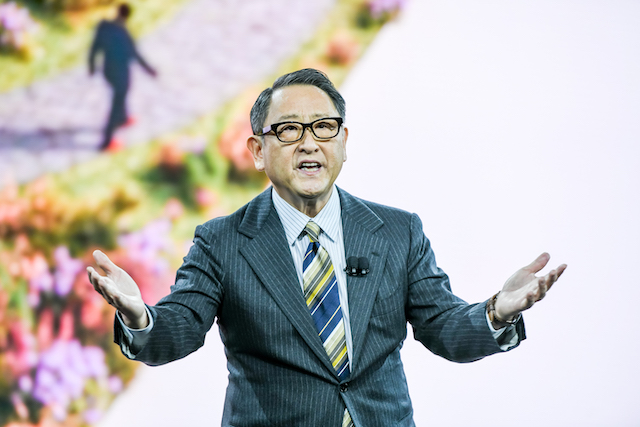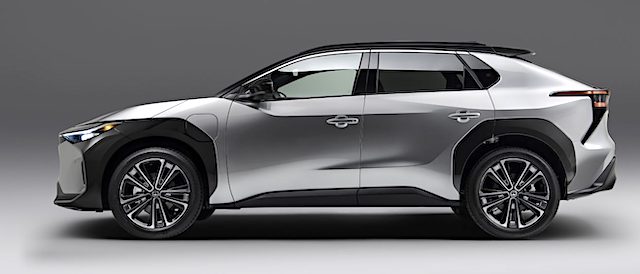
A planned ban from 2035 on petrol-powered vehicles in America’s so-called ‘green’ state California needs to be reconsidered, says Toyota Motor Corp. president Akio Toyoda (above).
“Realistically speaking, it seems rather difficult to really achieve that,” US publication Automotive News reports Toyoda as telling a conference in Las Vegas.
He said the California ban would not be workable for many consumers, cautioning that the transition to electric vehicles needed to be broader than a one-hit approach. Regulations “tend to narrow the options available for solutions toward carbon neutrality”.
“Just like the fully-autonomous cars that we were all supposed to be driving by now, battery-electric vehicles are just going to take longer to become mainstream than the media would like us to believe,” Toyoda said.
Consumers need to be offered not just electric cars but a variety of efficient vehicle types, he said. “Everything is going to be up to the customers to decide.
“Toyota is a department store of all sorts of powertrains. It’s not right for the department store to say, ‘This is the product you should buy’.”
Toyota led the drive towards petrol-electric hybrids with the launch 25 years ago in Japan of the Prius. The first Prius to go on sale in NZ was the second-generation version, in 2003. Toyota has sold more than 20 million Prius models worldwide since 1997.
The giant Japanese company has been late to the party with battery-electric vehicles but plans to launch 20 such models by 2030. The launch of its first, the BZ4X (below), developed jointly with the Subaru Solterra, was due this year but has been delayed. Toyota is also working on developing hydrogen vehicles.
Production of petrol and diesel vehicles will of course continue. “Playing to win means playing with all the cards in the deck – not just a select few,” said Toyoda. “So that’s our strategy and we’re sticking to it”.
Meanwhile, Toyota has announced it will exit the Russian market, selling its St Petersburg factory and ending imports to the country. Earlier this year, Toyota paused production of the RAV4 and Camry sedan at the factory because of parts supply disruptions caused by Russia’s invasion of Ukraine.
A media statement from the company, published in Automotive News Europe, said it has “not been able to resume normal activities and sees no indication that we can restart in the future”.
A spokesperson for Toyota Europe told the publication: “If sold, the (St Petersburg) plant will not build rebadged versions of the Camry and RAV4”.
Toyota says its laid-off workers will be offered assistance for “re-employment, re-skilling and well-being, including financial support above legal requirements”.
Both Toyota and its luxury offshoot Lexus will also cease imports of new cars to Russia, although the companies are planning to restructure their retail networks to provide ongoing service to existing customers.
- Is Toyota NZ lending subliminal support to those who want to change NZ’s name to Aotearoa? Or is it just trying to be neutral? A press release announcing the company’s new marketing slogan ‘Let’s Go Places’ says the Toyota name is “one of Aotearoa’s most trusted brands.” It quotes CEO Neeraj Lala … “As a mobility company, we have the capability to help drive positive change for Aotearoa … Our community is the Toyota community, the communities we operate in, and all of Aotearoa.”

